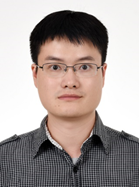题目:Energy Efficiency Solutions in Smart Building Design using Machine Learning Technology
报告时间:2019年12月13日上午9:30-11:00
地点:数字媒体教育部工程研究中心107会议室
Abstract. Artificial intelligence (AI) technology enhanced energy efficiency solutions are highly demanded and among the most important topics in the related fields, such as smart building/city design, applied energy applications, electrical and electronic engineering, automation and constructions. Three topics are covered in this seminar, including: 1) data-driven fault detection and diagnosis (FDD) of heating, ventilation and air-conditioning (HVAC) systems, 2) energy consumption forecasting problem for individual households and 3) solar energy utilization. First, I will introduce the most up-to-date energy efficiency problems of the above three topics and the motivations of using machine learning techniques to solve these problems. Second, the methodologies that we proposed and developed in the past five years will be briefly described, which include semi-supervised learning, generative adversarial networks, long-short term memory and hybrid deep learning neural networks. Last, the trends of using machine learning technology in the field of building are summarized. I will introduce some on-going projects and future works with my current research team.

Dr Yan Kereceived the bachelor’s degree and the Ph.D. degree from the Department of Computer Science, School of Computing, National University of Singapore in 2006 and 2012 respectively. From 2013 to 2014, he was a Post-Doctoral Researcher with the Masdar Institute of Science and Technology, Abu Dhabi, UAE. He is currently an assistant professor with the Department of Building, School of Design and Environment, National University of Singapore (BDG, SDE, NUS). His main research interests include energy efficiency solutions for buildings, time series analysis, machine learning, human-computer interaction, computer graphics and bioinformatics. He is an associate editor of IEEE/ACM Transactions on Computational Biology and Bioinformatics (Q2, Impact Factor: 2.896) and an associate editor of IEEE Transactions on Industrial Informatics (Q1, Top Journal, Impact Factor: 7.377).




